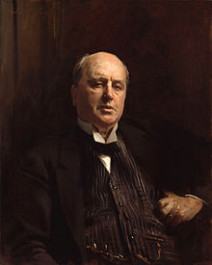It might be a pointless exercise to compare the literatures of two nations separated by more than three thousand miles (and, as the wag said, “a common language”) like Great Britain and the United States, but a hundred years ago there seems to have been a transatlantic squabble over who wrote better fiction: the oh-so-cultivated English or the barely civilized Americans. The discussion casts interesting light on the American character.
American literary critic Florence Finch Kelly entered the fray, considered the relative merits, and came to a perhaps surprising conclusion:
Our home critics, private and public, particularly like to hold up our own fiction alongside the English product and lament, with voice or pen, that “we can’t write fiction like those fellows over there.” Of course, we can’t, or at least don’t. But some of these days we shall see clearly enough to recognise in that fact reason for praise rather than blame.
To the British charge that American literature was hopelessly provincial, Finch responded,
The truth is, there cannot be a universal art in any phase of human endeavour until all the world is substantially alike. The greatest art—and by the greatest I mean that which has the greatest vitality, that is, the widest appeal and the longest life—has always been profoundly provincial. For when it is most provincial it comes closest to human life. In literature it then makes that intimate approach not only in the human nature that is its content, but also in the manner of portrayal.

Finch observes that American and English authors approach the task of writing from two entirely different directions, and she uses a brilliant comparison to make the point:
. . . the method of the American novelist is like a trim schooner, scudding before the wind, with everything taut and ship-shape, while the British method is like a houseboat drifting lazily down stream, with awnings and easy-chairs and hammocks and flower-boxes filling its decks.
As a result, while English authors (and those like Henry James who absorbed and re-radiated the British style) luxuriate in their leisurely, casual narratives,
the nervous strength, the swift and alert movement, the vividness, the matching of means to end, the direct and purposeful stroke, are significant and characteristically American features.
Finch argues that storytelling is of paramount importance, and that the American novel is significantly superior in this regard:
The heart, the purpose of the American novel—unless its author, as rarely happens, has been seduced away from his birthright by the desire to do something “like those English fellows” [a sly reference to Henry James, perhaps?]—is always the story it has to tell. The story may, as it should and as it always does in the best fiction, flow out of its characters and their relations with one another and with their environment. But it is always there, a good, interesting, gripping tale, a steadfast feature of American fiction deserving much praise. Rarely does the English novel score so high on this point.
Florence Finch Kelly reportedly wrote often for anarchist publications, but that doesn’t seem to have fatally impaired her literary judgment. You can read “American Style in American Fiction” (4 pages) here.

